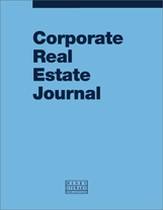The pitfalls of a post-COVID-19 portfolio consolidation
Abstract
The profound changes in the commercial real estate market brought about by the COVID-19 pandemic, including the widespread adoption of remote and flexible work arrangements, have significantly altered the utilisation of commercial office real estate. This paper outlines common pitfalls organisations may encounter when contemplating real estate portfolio consolidation due to these changes. It highlights the financial costs associated with reducing office space, while addressing the reputational cost of such decisions. The continually shifting landscape related to hybrid work policies is also explored, along with issues such as employee pushback, over-cutting space, timing issues, employee dissatisfaction and economic viability. To aid organisations in decision making, the paper suggests key metrics and data points for assessment, including headcount analysis, telework policies, badge analysis, sensor implementation, workplace observation, demand studies and pilot programmes. Ultimately, the paper underscores the importance of data-driven decision making while considering the holistic needs and preferences of employees. It acknowledges the challenges and uncertainties in the post-COVID-19 real estate market and provides a comprehensive checklist for organisations to consider prior to consolidating their real estate portfolios, and guidance for planning such consolidations effectively.
The full article is available to subscribers to the journal.
Author's Biography
Oriana Merlo is a workplace strategist with over 30 years’ experience across several sectors. A practice lead with AECOM’s People + Place Advisory group (formerly DEGW) in AECOM’s Boston office, Oriana specialises in planning and programming spaces for a wide variety of client types looking to consolidate real estate, maximise efficiencies and create healthy places to work, play, or live. Oriana’s expertise lies in forecasting the future of work and delivering measurable business benefits to her clients by integrating user research, organisational behaviour and environmental psychology strategies and spatial concepts to design innovative work environments and devise new ways to occupy and utilise buildings. With a background in electrical engineering and IT, Oriana brings a high-tech perspective to all her design work and understands the unique challenges of technical spaces. Oriana holds a Master of Liberal Arts in management from Harvard University, a Bachelor of Fine Arts in interior design from the New England School of Art & Design at Suffolk University and a Bachelor of Science in computer science and statistics from La Trobe University. She holds a National Council for Interior Design Qualification (NCIDQ) Certification, is a WELL accredited professional, a Fitwel ambassador and a LEED Interior Design + Construction (ID+C) accredited professional.
